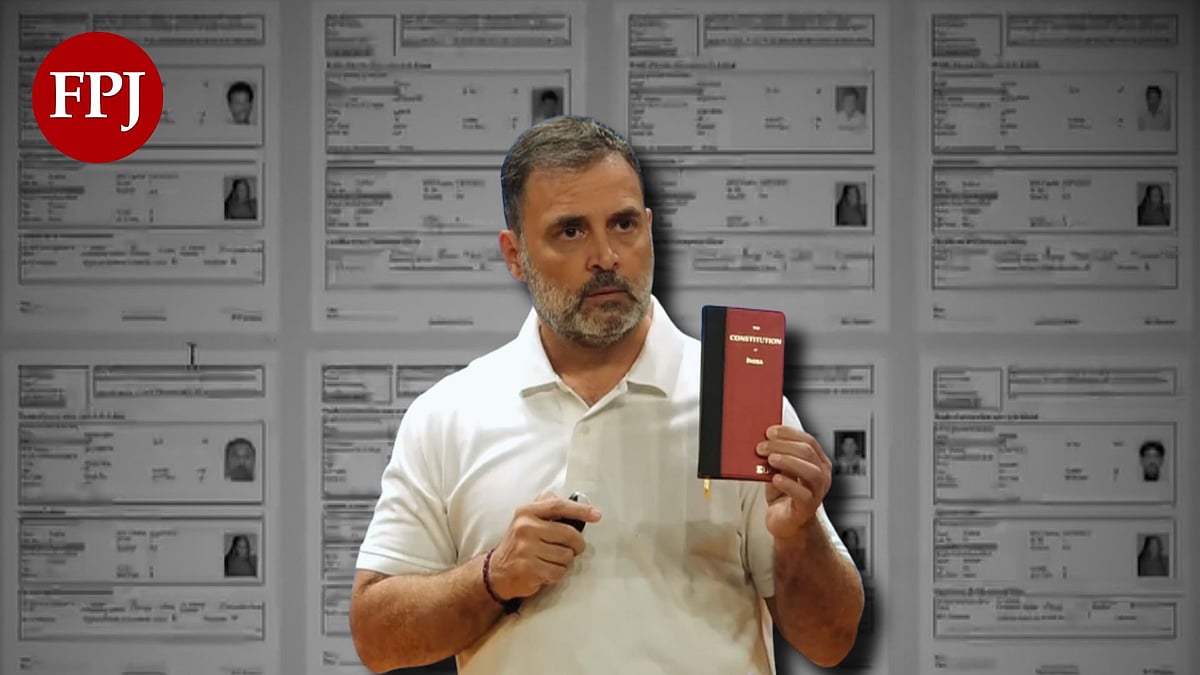Have you met a road, any road, anywhere in Mumbai that has not been dug up? If the venerable Brihanmumbai Municipal Corporation (BMC) were to run a contest and promise a crore of rupees, it would itself get richer by that amount. The common refrain heard across the length and breadth of the city is the unplanned, chaotic and disruptive road digging in virtually every area of the city has upended people’s lives and schedules, including travel time and possibly pollution levels too.
On an average, it takes an hour to negotiate a stretch that used to be covered in 20 minutes, many roads have been dug up in a zig-zag manner across their length in an area raising the difficulty levels in our commutes, some roads have been closed down for an unspecified length of time, a few inner roads, with paver blocks, have been opened up for who-knows-what-work but the paver blocks have not been restored to their places, roads that were perfectly healthy till the digging began are being concretised, roads are being dug deep for some under-belly upgradation work like hydraulic and other utilities – and more.
Does it have to be this way? The simple and straightforward answer is in the negative. That an old civic body, with decades of experience and budgets the size of a few state budgets, can work in such a shoddy and ad hoc manner on something as critical as the roads is shocking. That it follows no protocols to inform people or keep a channel open for feedback from road users, makes it worse. The complaints portal on its website is a joke; the less said about its complaint numbers, the better.
Cartoonists, standup comedians and content creators have been having a field day making jokes and pulling punches to show the sorry state of affairs. We laughed with them, the dry and dark humour of a serious situation, before going back to be on the roads that we laughed about. What is the alternative? Take the train or the metro, you say. Even so, road travel cannot be avoided because the last-mile connectivity will be through the road that reaches our homes and workplaces.
Why should the roads of an internationally significant city like Mumbai look like war-ravaged ones? Who are the road contractors so hard at work assuring us this is “for a better tomorrow”? When, indeed, will that better tomorrow arrive? I have been waiting for that promised golden dawn for over two decades; this “better tomorrow” has been shifting its goalposts, from what I can tell. The jokes and the whining apart, can the BMC not do better than this? After all, it has only about 2,000 kilometres of road to manage – dig and re-dig, construct and reconstruct.
The point is not that road work cannot, should not, be done. The critical aspect is how the BMC schedules and undertakes it, and what its protocols are or, worse, if protocols exist at all. If not, it is time to put them in place. Municipal Commissioner Bhushan Gagrani is an intelligent and sensitive officer, and would appreciate the need for better management of road work so that millions of Mumbaikars are spared the daily trauma. A few improvements can be made even now.
Firstly, the local ward office must display notices of a road that will be dug up at least a few days before the machinery is moved in and these notices must be prominently put up at key locations in the area. The notices must state the work to be undertaken, how many days it is scheduled to take, what the alternative routes are, the contractor’s name, and the coordinates of a point of contact in either the contractor’s firm or the BMC. Such a notice, or versions of it, are available here and there, mainly on roads in upmarket areas but this must be the norm all over. This road-wise information must be available on the official website. This is the basic way to inform people and allow them to plan their commutes.
Secondly, the purpose of undertaking road work and its budget or tender amount should be public knowledge available on the website or, certainly, at the ward office. An attempt to get this for Andheri East ended up with a Kafkaesque story for some of us. It was the usual run-around in a sarkaari office – no one really knows who is in charge, those who know are not available, the information cannot be given and so on.
Thirdly, the complaints mechanism has to be better organised and more responsive at both the city and ward levels. An assistant municipal commissioner heading a ward may respond to an individual he/she knows or who has his/her contact details and a complaint may get resolved but such individualisation cannot be the process. Every ward office must receive – and respond – to complaints that people make online or on WhatsApp or in writing. The feedback can make a difference to the situation on the ground – if the BMC takes it on board.
Fourthly, and this goes back to the political aspect of urban governance, there is a need to constitute area sabhas or citizens’ committees to monitor and oversee public work that the BMC has undertaken. There used to be some sense of this when elected corporators were around and they were not covertly in partnership with the firms that won the road contracts. However, Mumbai has not had elected corporators for three years now; the BMC election was due in February 2022.

The grand plans to connect all of Mumbai with a ring road and make travel times into minutes, which we routinely hear and see, seem like a pie in the sky given the abject situation on the ground. Is it that the grand plans are taking up all the attention? A decade and more ago, allegations of massive corruption in the road works of Mumbai had landed a clutch of road contractors in the dock when the matter reached the Bombay high court and some of them had to be blacklisted. Neither the contractors’ lobby nor the BMC appear to have learned any lessons from that. That “better tomorrow” is perhaps not meant to arrive.
Smruti Koppikar, senior journalist and urban chronicler, writes extensively on cities, development, gender, and the media. She is the Founder Editor of the award-winning online journal ‘Question of Cities’ and won the Laadli Media Award 2024 for her writing in this column.










